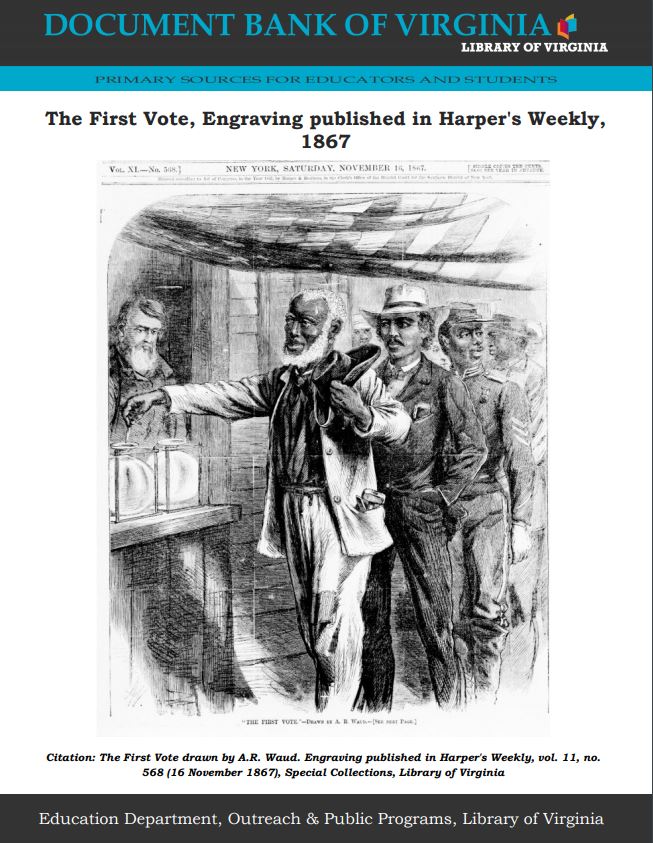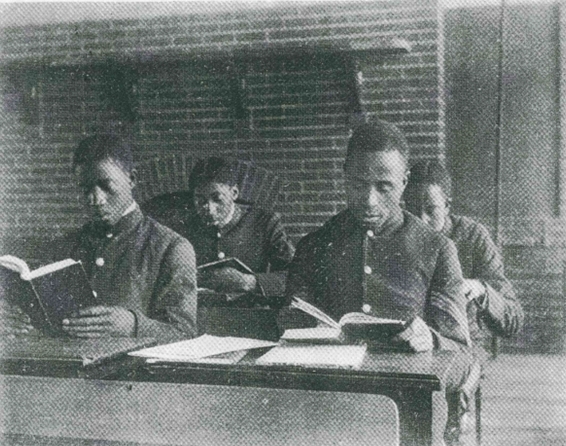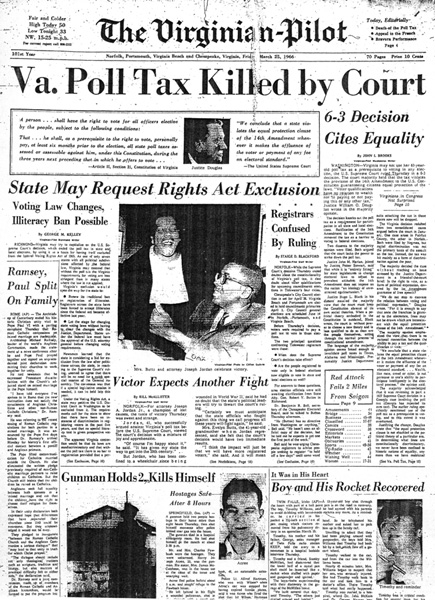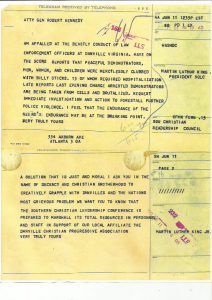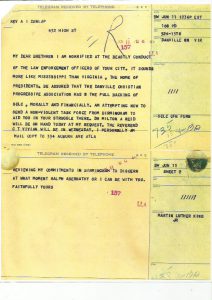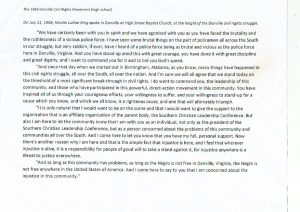
Welcome to the resource page for the Library of Virginia’s eleventh annual Brown Teacher Institute, held in August 2020. The eleventh annual Brown Teacher Institute focused on legacies of slavery and racism in the Commonwealth and this page offers tools, resources, and content to aid educators in teaching these topics in the classroom. The Institute was virtual only and featured guest speakers and live Q&As, the videos of which can be found below.
The 2020 Brown Teacher Institute keynote speaker, sponsored by Virginia Humanities, featured Dr. Hasan Kwame Jeffries in conversation with Norfolk 4th grade teacher Chris Mathews. They discussed the work Dr. Jeffries has done with the Southern Poverty Law Center’s Teaching Hard History initiative, which has designed a framework for teaching slavery in K-12 classrooms.
Click the hyperlinks below to navigate this page!
– Resources –
– Schedule –
– Speaker/Session Videos –
– Speaker Resources –
– Speaker Bios –
Resources:
We want to help parents, caregivers, students, and lifelong learners with at-home resources prepared by The Library of Virginia. Please visit our At-Home Learning page to see free resources accessible from the Library of Virginia for all age groups!
Virginia Humanities, Encyclopedia Virginia
Encyclopedia Virginia provides a free, reliable, multimedia resource that tells the inclusive story of Virginia for students, teachers, and communities who seek to understand how the past informs the present and the future. You can also browse each entry by SOL by clicking this link.
See also the Encyclopedia Virginia blog and check out their podcast Not Even Past.
Here are some relevant entries to this year’s Institute;
- Abolition of Slavery
- 13th Amendment
- 14th Amendment
- 15th Amendment
- Disfranchisement
- The Poll Tax
- Massive Resistance
- African American and Politics
- Vagrancy Act of 1866
- Constitutional Convention of 1901-1902
- Petersburg Convention of March 14, 1881
- Ex Parte Virginia 1880
- Lynching in Virginia
- “Colored Farmers’ Alliance and Cooperative Union” of Virginia
- “Colored Shiloh Baptist Association”
- Establishment of Public School System in Virginia
- Danville Riot 1883
- Danville Civil Rights Demonstration of 1963
- Ku Klux Klan in Virginia
Dictionary of Virginia Biography (DVB)
The Dictionary of Virginia Biography (DVB) is an ongoing biographical reference work covering all centuries, regions, and categories of Virginia’s history and culture. These lists and indexes provide links to online biographies and citations to the print volumes. The Library of Virginia continues to publish DVB content online, with some biographies on Encyclopedia Virginia through a partnership with Virginia Humanities. Check back for new entries.
Civic Conversations
This small-group discussion series encourages informed conversations around complex topics affecting Virginia and provides a number of resources and discussion questions that can be utilized in the classroom.
Document Bank of Virginia
Document Bank (edu.lva.virginia.gov/dbva) is filled with primary historical sources ready to use in the classroom. These documents can be browsed by a specific historic era, by theme, or using a simple search. This includes an “African American History” theme, which holds a large range of primary resources that include historical context and suggested questions to inspire students to think further about the significance. DBVa teaches students to be critical thinkers as they analyze original documents and draw their conclusions about Virginia’s past.
Virginia Changemakers
Filled with biographies of men and women who have changed Virginia’s history, this section of the Education website is searchable by specific era, themes such as Education and Civil Rights and Reform, or a simple search and alphabetical order. Virginia Changemakers (edu.lva.virginia.gov/changemakers/) brings together the remarkable lives of Virginians who have made a difference in their community, state, and nation and include those who have been honored through the Library of Virginia’s program celebrating Black History Month, Strong Men and Women in Virginia History.
Shaping the Constitution
Found in the online classroom (edu.lva.virginia.gov/online_classroom) of the Education website, “Shaping the Constitution” features important primary source documents from the Library of Virginia and the Library of Congress related to America’s Founding Era and the U.S. Constitution, with particular attention to the Thirteenth, Fourteenth, and Fifteenth Amendments. Historical text, narratives, images, links, and even a few videos come together in these sections to bring history to life for your students.
Lesson Plans
Also found in the online classroom, “Lesson Plans” has images, context, SOL correlations, handouts, and suggested materials, all brought together to give educators a head start on certain topics, such as the 19th-Century Interstate Slave Trade.
Exhibitions
Found at www.virginiamemory.com, our online gateway to the Library’s digital collections offers wonderful classroom tools. Our list of exhibitions is a great place to see not only what is currently available in the gallery space located on the Library’s first floor, but also an overview of some our past exhibitions on African American history, like Remaking Virginia, Brown v. Board of Education: Virginia Responds, and True Sons of Freedom.
Virginia Untold
Virginia Untold (virginiamemory.com/collections/aan/) is a collaborative project between the Library of Virginia and the Virginia Museum of History and Culture whose purpose is to document the African American experience in Virginia found in records stored in the two leading archival institutions in the commonwealth. Dating back to the 1600s, these records contain the stories of both free and enslaved African Americans, and, when taken together, provide a detailed account of the challenges they faced. Four of the most insightful record types found in Virginia Untold are freedom suits, petitions to remain in the commonwealth, public claims, and coroner’s inquisitions. The blog “Out of the Box: Notes from the Archives at the Library of Virginia” includes several of these stories, which can easily be plugged in for use in the classroom. Examples include the experiences of the Cullins Family, Betty Chapman, Peter Spain, and Martha Ann Hobson.
Virginia Chronicle
Virginia Chronicle (virginiachronicle.com) is a historical archive of Virginia newspapers, providing free access to full-text searching and digitized images of over a million newspaper pages dating back to the early 1800s. The site includes a search feature to find “African American Newspapers” by going to the “Titles” tab under the “Category” drop down. Additionally, the pre-1866 newspapers include thousands of runaway slave advertisements. Along with archival records housed at the Library of Virginia, these open up a new avenue for research and can easily be incorporated into a classroom activity; by delving into the combined resources of newspapers and archival records, a more complete story begins to unfold. Examples of these are available on our “Fit to Print” newspaper blog. As an example, here is a link to a post about how an enslaved man named Humphrey freed himself and his son.
Transcribe
Transcribe (virginiamemory.com/transcribe/) is a collaborative online workspace where the public can participate in enhancing access to many of our amazing collections documenting over 400 years of Virginia history, people, and culture. Students can dig deep into our collections and transcribe difficult-to-read materials—from peace to wartime, court records to letters home, and conspiracies to political statements, there will be something for everyone.
Schedule:
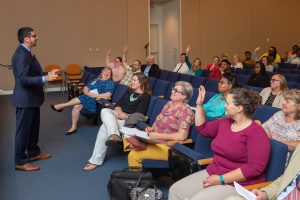
August 3, 2020
9:00am – 9:45am: Welcome & Introductions
10:00am – 11:00am: Dr. Hasan Kwame Jeffries Keynote
Please join Encyclopedia Virginia in welcoming Dr. Hasan Kwame Jeffries to the Eleventh Annual Brown Teacher Institute. Dr. Jeffries will be in conversation with Norfolk 4th grade teacher Chris Mathews. They will discuss the work Dr. Jeffries has done with the Southern Poverty Law Center’s Teaching Hard History initiative which has designed a framework for teaching slavery in K-12 classrooms
11:15am – 12:30pm: Slavery & its Legacies, Brent Tarter
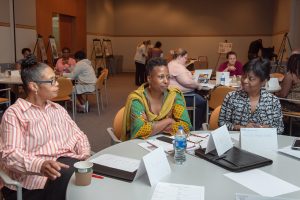
August 4, 2020
9:00am – 9:15am: Welcome/Reflection on Day 1
9:30am – 10:30am: The Rise of Jim Crow, Dr. Jody Allen
10:45am – 11:45am: Segregation & Civil Rights, Ressie Luck-Brimmer
12:15pm – 1:15pm The Confederacy & its Legacies, Dr. Julian Hayter
1:15pm – 1:30pm: Wrap-Up
Speaker/Session Videos:
View the entire youtube playlist here
Dr. Jody Allen, The Rise of Jim Crow
Dr. Julian Hayter, The Confederacy & its Legacies
Dr. Hasan Kwame Jeffries Keynote Conversation with Chris Mathews
Ressie Luck-Brimmer, Segregation & Civil Rights
Brent Tarter, Slavery and its Legacies
Speaker Resources:
Dr. Jody Allen
- Powerpoint from Eleventh Annual Brown Teacher Institute Session
- “Rubric for Interpreting Slavery” Handout
- The Lemon Project: The Lemon Project is a multifaceted and dynamic attempt to rectify wrongs perpetrated against African Americans by William & Mary through action or inaction. An ongoing endeavor, this program will focus on contributing to and encouraging scholarship on the 300-year relationship between African Americans and W&M, and building bridges between the university and Williamsburg and Greater Tidewater area. The Lemon Project is a member of the Universities Studying Slavery Consortium. The Lemon Project is generously funded by the Office of the Provost at William & Mary.
- Jody Allen featured on With Good Reason
Dr. Julian Hayter
- Powerpoint from Eleventh Annual Brown Teacher Institute
- Modern U.S. Civil Rights
- Julian Hayter: Urbanization, Urban History, and Contemporary American Cities
- NPR History: Times Are Changing As Tolerance Weakens For Confederate Monuments
- 60 Minutes Clip featuring Julian Hayter
- 60 Minutes Interview featuring Julian Hayter
Dr. Hasan Kwame Jeffries
- Teaching Tolerance: A Framework for Teaching American Slavery
- Articles by Dr. Jeffries on Teaching Tolerance
- Confronting hard history | Hasan Kwame Jeffries | TEDxOhioStateUniversity
- Teaching Tolerance Podcast
Resources that came up in the chat during Dr. Jeffries’ session:
- Stanford History education: Reading like a Historian
- Colonial Williamsburg Teacher’s Resrouces
- Zinn Education Project
- American Battlefield
- Primary resources – literacy tests (there are a few from New Orleans and Louisiana where they are downloadable and you can give it to the students)
- Original responses from the Richmond Planet about the thoughts of the Black community of the newly erected monuments
- On Monument Ave
Ressie Luck-Brimmer
- Timeline from Eleventh Annual Brown Teacher Institute session
- History United, In the Classroom
- History United, Leadership in the 1963 Danville Civil Rights Movement – Upper Elementary Curriculum
- Leadership in the 1963 Danville Civil Rights Movement – Middle School Curriculum
- Leadership in the 1963 Danville Civil Rights Movement – High School Curriculum
- With Good Reason, “The Empathy Tours”
- Danville Civil Rights Demonstrations of 1963
- Mapping Local Knowledge
- 1963: A Turning Point in Civil Rights (book)
- The Movement – Danville Civil Rights (video)
- Uncovering Danville’s place in Green Book and Civil Rights History (video)
Click each image to see an enlarged version (images referenced by Ressie Luck-Brimmer)
Other Digital Resources:
Videos
- Ed Baptist, The Half Has Never Been Told: Slavery and the Making of American Capitalism
- Ira Berlin, The Long Emancipation: The Demise of Slavery in the United States
- American Historical Association, Future of the African American Past
Projects & Archives
- Freedom on the Move is a database of fugitives from North American slavery.is a database of fugitives from North American slavery. With the advent of newspapers in the American colonies, enslavers posted “runaway ads” to try to locate fugitives. Additionally, jailers posted ads describing people they had apprehended in search of the enslavers who claimed the fugitives as property. They also include K-12 Educator Resources
- Smithsonian: National Museum of African American History & Culture, Talking About Race. They also have a page specifically for Educators.
- Library of Congress- Slavery in America: A Resource Guide
- Smithsonian: The National Museum of American History exhibition: Changing America: The Emancipation Proclamation, 1863, and the March on Washington, 1963. They also include Teacher Resources
- Ferris State University- Jim Crow Museum of Racist Memorabilia, timeline of Slavery in America
- Slave Voyages 2.0 This digital memorial raises questions about the largest slave trades in history and offers access to the documentation available to answer them. European colonizers turned to Africa for enslaved laborers to build the cities and extract the resources of the Americas. They forced millions of mostly unnamed Africans across the Atlantic to the Americas, and from one part of the Americas to another. Analyze these slave trades and view interactive maps, timelines, and animations to see the dispersal in action. They also include Lesson Plans.
- Documenting the American South: North American Slave Narratives collects books and articles that document the individual and collective story of African Americans struggling for freedom and human rights in the eighteenth, nineteenth, and early twentieth centuries. This collection includes all the existing autobiographical narratives of fugitive and former slaves published as broadsides, pamphlets, or books in English up to 1920. Also included are many of the biographies of fugitive and former slaves and some significant fictionalized slave narratives published in English before 1920.
Speaker Bios:
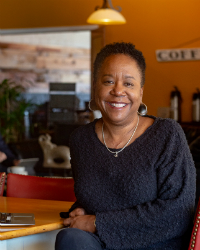
Dr. Jody Allen
Assistant Professor of History, The Lemon Project Director
Email: jlalle@wm.edu
Office: Blair 312
Phone: 221-1200
Regional Areas of Research: United States
Thematic Areas of Research: African American, American South, Race and Ethnicity, Women, Gender, and Sexuality
Education
B.A., Criminal Justice, University of Delaware
B.A., Political Science, University of Delaware
M.S., Criminal Justice, Michigan State University
Ph.D., College of William & Mary
Jody Lynn Allen, Ph.D. is a native of Hampton, VA, and an Assistant Professor of History at William & Mary. Her research interests cover the U.S. Civil War through the Long Civil Rights Movement focusing on black agency. Her current manuscript, Roses in December: Black Life in Hanover County, Virginia During the Era of Disfranchisement, considers the consequences of and responses to the 1902 Virginia constitution revisions that disfranchised most African American males. She is working with a colleague to produce “The Green Light,” a documentary film on the school desegregation case, Charles C. Green v. the School Board of New Kent County, VA. This little-known 1968 Supreme Court decision led to the integration of public schools throughout the South. She co-authored “Recovering a ‘Lost’ Story Using Oral History: The United States Supreme Court’s Historic Green v. New Kent County, Virginia, Decision” which appeared in The Oral History Review. Her article, “Thomas Dew and the Rise of Proslavery Ideology at William & Mary” appears in the Forum on Slavery and Universities in the May 2018 edition of Slavery & Abolition. Allen is also the director of The Lemon Project: A Journey of Reconciliation, which is uncovering, making public, and addressing William & Mary’s 326-year relationship with African Americans on the campus and in the Williamsburg and Greater Tidewater area. During the 2017-2018 academic year, Allen was a visiting assistant professor of history at the University of the South at Sewanee, TN where she taught African American History and consulted with Sewanee’s Project on Slavery, Race, and Reconciliation.
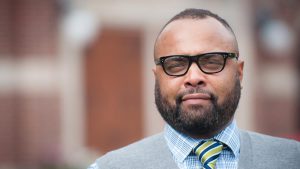
Dr. Julian Hayter
Contact Information: jhayter@richmond.edu
237 Jepson Hall
(804) 287-6097
(804) 287-6062 (Fax)
Areas of Expertise:
Modern African American History
American Civil Rights Movement
African American Politics in Richmond, Virginia
American Political Development after 1945
Education
Ph.D., University of Virginia 2010 American History
M.A.,University of Virginia 2005 American History
B.A., University of Washington 2003 History
Dr. Julian Hayter is a historian whose research focuses on modern U.S. history, American political development, African-American history, and the American civil rights movement.
More specifically, his writing and research draws attention to mid-20th-century voting rights in Richmond, Va., and in the border South; the implementation of the Voting Rights Act; and the unintended consequences of African-American political empowerment and governance post-1965.
He is the author of The Dream is Lost: Voting Rights and the Politics of Race in Richmond, Virginia. His work has been published in the Journal of Policy History and Richmond Journal of Law and Public Interest. He also contributes to national and local media outlets.
In the Jepson School, he teaches courses such as Leadership and the Humanities, Justice and Civil Society, and Reimagining Richmond (an urban history of Richmond and the city’s contribution to the freedom struggle).
A popular and creative teacher, he was named Faculty Member of the Year in 2013-14 by the Richmond College Student Government Association.

Dr.Hasan Kwame Jeffries
Email: Jeffries.57@osu.edu
Areas of Expertise: African-American History, US History since 1877, Human Conflict, Peace, and Diplomacy, Power, Culture, and the State, Race, Ethnicity, and Nation
Associate Professor at Ohio State University, Hasan Kwame Jeffries was born in the Crown Heights section of Brooklyn, New York. After graduating from Midwood High School in 1990, he headed south, enrolling at Morehouse College in Atlanta, Georgia, the nation’s leading institution for educating African American men. While matriculating at Morehouse, he was inducted into the Phi Beta Kappa honor society and initiated into the Pi Chapter of Kappa Alpha Psi Fraternity, Inc.
Hasan graduated summa cum laude from Morehouse with a BA in history in 1994. That same year, he left the New South for the Old, moving to Durham, North Carolina, and enrolling at Duke University, where he earned a MA in American history in 1997, and a PhD in American history with a specialization in African American history in 2002.
While completing his graduate work, he lived periodically in Montgomery, Alabama, the birthplace of the modern the civil rights movement. In 2002, he relocated to Tuscaloosa, Alabama, where he served as the Bankhead Fellow in the history department at the University of Alabama. He spent one year at Alabama, teaching American history and African American history.
After time well spent in the “Heart of Dixie,” Hasan crossed the Ohio River and joined the faculty at The Ohio State University in the history department. Since arriving at Ohio State, Hasan has taught graduate and undergraduate seminars on the Civil Rights and Black Power Movement, and surveys in African American and American history.
He has received several fellowships in support of his research, including a Ford Foundation Post-Doctoral Fellowship. He has also regularly shared his expert knowledge of African American history and contemporary black politics with the general public through lectures, teacher workshops, and frequent media appearances.
In 2009, Hasan published his first book, Bloody Lowndes: Civil Rights and Black Power in Alabama’s Black Belt (NYU Press). Bloody Lowndes tells the remarkable story of the ordinary people and college age organizers from the Student Nonviolent Coordinating Committee (SNCC) who ushered in the Black Power era by transforming rural Lowndes County, Alabama from a citadel of violent white supremacy into the center of southern black militancy. They achieved this extraordinary feat by creating the Lowndes County Freedom Organization (LCFO), an all-black, independent, political party that was also the original Black Panther Party. Bloody Lowndes has been praised as “the book historians of the black freedom movement have been waiting for,” and as “an invaluable contribution to understanding current and future ‘conversations’ on race and politics.”
His current book project, entitled Stealing Home: Ebbets Field and Black Working Class Life in Post-Civil Rights New York, explores the struggle of working class African Americans to secure and enjoy their freedom rights, from the height of the civil rights era through the present, by examining the experiences of the residents of Ebbets Field Apartments, an expansive, 1,200 unit, affordable housing complex built in 1962 on the site of old Ebbets Field, the former home of Major League Baseball’s Brooklyn Dodgers.
He travels frequently to the South to visit friends, and returns often to Brooklyn to visit family. View Professor Jeffries’ discussion about African American history here.
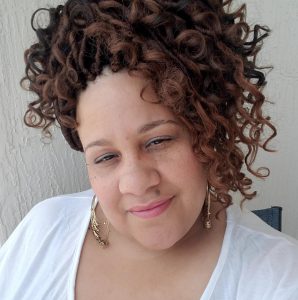
Ressie Luck-Brimmer
Virginia Humanities Program Director, History United
Karice Luck is the program coordinator for History United, a place-based project of Virginia Humanities. Working in the Danville area, Luck collaborates with Virginia Humanities staff and local community members in Danville to establish a strong network of local cultural organizations committed to positive change. Through community dialogues and programs, she encourages a collective process of determining how a deeper understanding of local history can build a new sense of purpose and identity. Luck has done extensive genealogical research on the Pittsylvania County, VA area. She is the founding president of the Danville/Pittsylvania County Chapter of the Afro-American Historical & Genealogical Society.

Brent Tarter
Brent Tarter was born in 1948 in Texas, graduated from Angelo State College, in San Angelo, Texas, in 1970, and did his graduate study at the University of Virginia, with a primary research interest in early twentieth-century political history. He was the first, or one of the first, people to gain access to the Harry Flood Byrd Sr. Papers, which were open to researchers at the University of Virginia Library in 1971. From 1974 to 1982 he worked in the basement of the Virginia State Library (now the Library of Virginia), in Richmond, as one of the editors of the seven-volume Revolutionary Virginia, The Road to Independence: A Documentary Record (Charlottesville, 1973–1983). As a spin-off project, he edited and the state library published The Order Book and Related Papers of the Common Hall of the Borough of Norfolk, Virginia, 1736–1798 (Richmond, 1979).
In 1982, Brent and Sandra G. Treadway became the founding editors of the multivolume Dictionary of Virginia Biography. He was also a senior editor in the library’s publications division from 1982 to 2010 and assistant division director from 1996 to 2002. From 1995 to 2010, Brent was one of the moderators of “Va-Hist”, the first electronic discussion group for any state, and from 2000 to 2010 he was the moderator of the “Va-Roots” disscusion group.
The University of Virginia Press published his study of Virginia’s political culture, The Grandees of Government: The Origins and Persistence of Undemocratic Politics in Virginia, in 2013. He has published numerous articles on various aspects of Virginia’s history in the Virginia Magazine of History and Biography, Virginia Cavalcade, South Atlantic Quarterly, Magazine of Virginia Genealogy, Journal of Southern Legal History, and American Journal of Legal History. His journal articles include a comprehensive needs-and-opportunities essay entitled “The New Virginia Bookshelf,” Virginia Magazine of History and Biography 104 (1996): 7–102, and a history of historical writing in Virginia, “Making History in Virginia,” Virginia Magazine of History and Biography 115 (2007): 2–55.
Brent is a member of the American Historical Association; the Association for Documentary Editing; the Organization of American Historians; the Southern Association of Women Historians; the Southern Historical Association; and the Virginia Historical Society. In 2006, he and Shenandoah University historian Warren Hofstra founded the Virginia Forum, the first annual conference on Virginia history.


